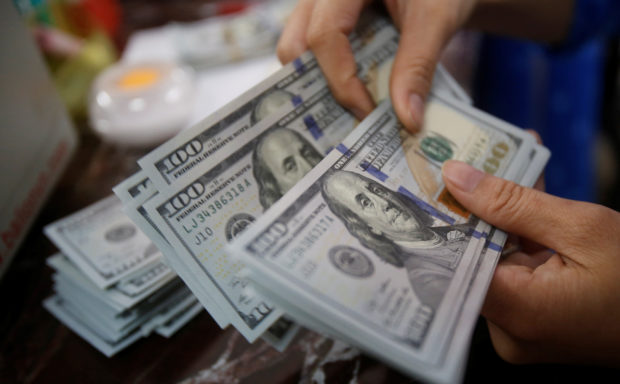For the first time in seven months, the Philippines rebuilt its foreign exchange reserves back to the crucial $100-billion level at end-January, as the Bangko Sentral ng Pilipinas (BSP) replenished the ammunition earlier deployed to curb local currency volatility.
The country’s balance of payments (BOP) posted a surplus of $3.1 billion in the first month of the year, reversing the $102-million deficit recorded in the same month last year.
“The BOP position reflects an increase in the final gross international reserves (GIR) level to $100.7 billion as of end-January 2023 from $96.1 billion as of end-December 2022,” the BSP said in a statement on Monday.
Sovereign bonds
The January surplus reflected inflows arising mainly from the national government’s net foreign currency deposits with the BSP, according to the central bank. This includes proceeds from the government’s latest offshore issuance of sovereign bonds and net income from investments abroad.
BOP reflects the total tally of the country’s economic transactions with the rest of the world, whether through trade of goods and services or the movement of financial assets like short- or long-term investments, as well as debt flows. In general, a BOP surplus supports the value of the local currency against the US dollar at the foreign exchange market.
“The latest GIR level represents a more than adequate external liquidity buffer equivalent to 7.6 months’ worth of imports of goods and payments of services and primary income,” the BSP added.
More inflows
This GIR level was also estimated to be nearly 6.2 times the country’s short-term external debt based on original maturity and 4.1 times based on residual maturity.
“For the coming months, BOP data could still be supported by the continued growth in the country’s structural US dollar inflows such as overseas Filipino worker remittances, business process outsourcing revenues, exports, foreign investments/foreign direct investments, foreign tourism receipts, among others,” said Michael Ricafort, chief economist of RCBC.
“The proposed $3 billion US dollar or euro-denominated retail bonds to be offered by the national government by the latter part of first quarter or early second quarter 2023, with a tenor of at least five years, would also be added to the country’s BOP and GIR by then,” Ricafort said. INQ
